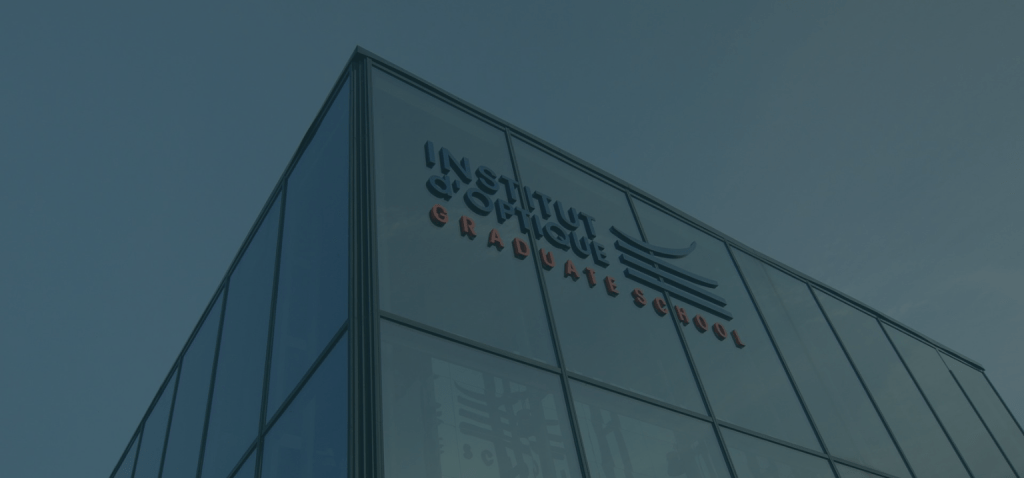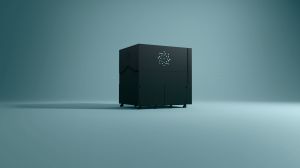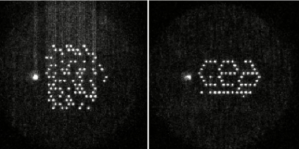Pasqal and IOGS continue their deep-rooted partnership driving quantum innovation
The Institut d’Optique Graduate School (IOGS) has been at the forefront of optics and photonics research for over a century, producing some of the world’s leading scientists. Among its alumni, researchers, and professors are Antoine Browaeys, Thierry Lahaye, Georges-Olivier Reymond, and Alain Aspect, all of whom have played instrumental roles in advancing neutral atom quantum computing. From its origins in Laboratoire Charles Fabry (LCF) at IOGS, Pasqal has evolved into a world-leading quantum computing company, pioneering neutral atom quantum processors. Today, Pasqal and IOGS maintain a strong partnership, recently formalized through the creation of a joint research laboratory (laboratoire commun). This initiative aims to bridge cutting-edge academic research with industrial quantum computing development, accelerating progress toward achieving practical Quantum Advantage.
The Shared Legacy of Pasqal and IOGS
Pasqal’s roots are deeply intertwined with IOGS and its Quantum Optics research group. Many of the company’s founding members studied and conducted research at IOGS, where their work laid the foundation for the company’s technological breakthroughs. Antoine Browaeys, a leading physicist in neutral atom quantum systems, continues to hold a research role at IOGS and the French National Center for Scientific Research (CNRS), ensuring an ongoing exchange of knowledge between academia and industry.
Georges-Olivier Reymond, Chief Strategic Alliances Officer and co-founder of Pasqal, completed his PhD at IOGS under Philippe Grangier, where he was one of the first scientists to trap a single atom in optical tweezers, an achievement that would later form the basis of Pasqal’s quantum processors. Thierry Lahaye, another key researcher at IOGS, contributed significantly to early achievements in Rydberg atom interactions, a fundamental principle of Pasqal’s quantum computing approach. Nobel Laureate Alain Aspect, whose groundbreaking experiments on quantum entanglement helped shape modern quantum mechanics, has served as a mentor and source of inspiration for many of Pasqal’s leading scientists.
Beyond its influence on Pasqal’s origins, IOGS remains a crucial training ground for future quantum experts. Many of the institution’s graduates now work at Pasqal, reinforcing the strong connection between academia and industry. This continuous flow of talent ensures that the relationship between Pasqal and IOGS is not just historical but remains an active, living collaboration.
The birth of Pasqal, a company born from IOGS
Although Pasqal was officially founded in March 2019, its origins stretch back much further. The company was born out of years of research at LCF, where pioneering experiments in Rydberg atom physics and optical tweezers laid the foundation for neutral atom quantum computing. The idea of commercializing this research first emerged in 2012, when Georges-Olivier Reymond approached Antoine Browaeys with the concept of starting a company. At the time, the technology was still in its infancy, and the idea seemed premature.
By 2018, however, advancements in Rydberg atom research had significantly matured, making the idea of commercialization much more realistic. Around this time, Christophe Jurczak, also a former IOGS PhD student who had spent years in the US witnessing the rapid growth of the quantum startup ecosystem, saw an opportunity to establish a European leader in neutral atom quantum computing. A pivotal moment came when a US-based quantum startup reached out to Browaeys, expressing interest in his research. Realizing that international competitors were already preparing to commercialize the technology, the need to act became urgent. Soon after, Browaeys, Reymond, Lahaye, Aspect, and Jurczak formally established Pasqal, with early financial backing from the Quantonation investment fund.
During its first year, Pasqal was hosted within IOGS, a move that proved instrumental in the company’s early success. With access to world-class laboratory facilities, the team was able to rapidly develop its first quantum processors without the burden of high infrastructure costs. This initial support from IOGS allowed Pasqal to transition from academic research to an industrial quantum technology company at an unprecedented pace.
A close and evolving partnership
Even after moving to its own facilities Pasqal continued to collaborate closely with IOGS. This ongoing partnership has led to major advancements in the field of neutral atom quantum computing. Research at IOGS played a significant role in demonstrating the Rydberg blockade mechanism, a key breakthrough that enables neutral atom-based qubits. Further collaborative research helped develop techniques to arrange atoms into large-scale qubit registers, a necessary step toward building quantum processors with more than 1000 qubits.
Beyond technical advancements, IOGS has remained a crucial talent pipeline for Pasqal. Many of the company’s researchers and engineers were trained at IOGS, ensuring that the latest academic developments in quantum physics seamlessly translate into Pasqal’s industrial R&D efforts. This strong alignment between academic research and industrial application set the stage for an even deeper collaboration: the launch of a formal joint research laboratory.
The ‘Laboratoire Commun’, industrializing quantum research
In December 2024, Pasqal and IOGS, in collaboration with the French National Center for Scientific Research (CNRS), officially launched a joint research lab (laboratoire commun) based at IOGS in Palaiseau. The joint lab is designed to serve as an R&D extension of Pasqal, focusing on exploring new frontiers in quantum computing while leveraging IOGS’ deep academic expertise. The laboratory’s mission is to bridge the gap between fundamental research and real-world quantum computing applications, allowing for rapid progress in key areas of development.
A key advantage of the joint lab is its ability to accelerate the transition from research to implementation. In a typical academic setting, a new quantum experiment might take months to execute due to the complexities of setup and testing. By incorporating Pasqal’s engineering expertise, these processes can now be completed in a matter of weeks, significantly speeding up the pace of discovery.
The lab’s first research projects focus on two critical areas: optimizing atomic register assembly using Spatial Light Modulators (SLMs) to enhance the speed and efficiency of atomic rearrangement, and developing high-performance Raman lasers, a crucial technology for controlling neutral atom qubits. In its first few months, the lab has already hosted a workshop attended by nearly forty researchers, further reinforcing the close collaboration between IOGS and Pasqal.
What’s next for Pasqal & IOGS?
Looking ahead, the Pasqal-IOGS partnership aims to achieve several ambitious goals. One of the key objectives is to demonstrate practical Quantum Advantage, proving that Pasqal’s quantum computers can outperform classical computers on meaningful computational tasks. The joint lab will also focus on advancing digital quantum computing, with the goal of transitioning from analog simulation to fully digital quantum processing. Additionally, researchers will work on developing scalable, fault-tolerant quantum systems, addressing the critical challenge of error correction in quantum computing.
Beyond these research goals, the collaboration seeks to expand quantum simulation capabilities, using Pasqal’s technology to tackle complex problems in materials science, energy optimization, and financial modeling. By combining IOGS’ research expertise with Pasqal’s engineering and commercialization capabilities, the partnership is well-positioned to bring practical quantum computing solutions to industry.
Antoine Browaeys believes that the Pasqal-IOGS collaboration represents a unique model for quantum research and development. By integrating cutting-edge academic inquiry with real-world engineering expertise, the partnership accelerates the path to useful quantum computing while ensuring that Europe remains a leader in the global quantum technology race.
The partnership between Pasqal and IOGS is more than just a research collaboration, it is a story of scientific legacy, innovation, and industrial transformation. From its origins in LCF to the creation of a globally recognized quantum computing company, this collaboration showcases how academic research can drive technological breakthroughs with real-world impact.
With the launch of the joint research lab, Pasqal and IOGS are entering a new era of collaboration, one that will help define the future of quantum computing. As they work toward Quantum Advantage, their combined efforts promise to deliver groundbreaking advancements that will shape science, industry, and society for decades to come.


